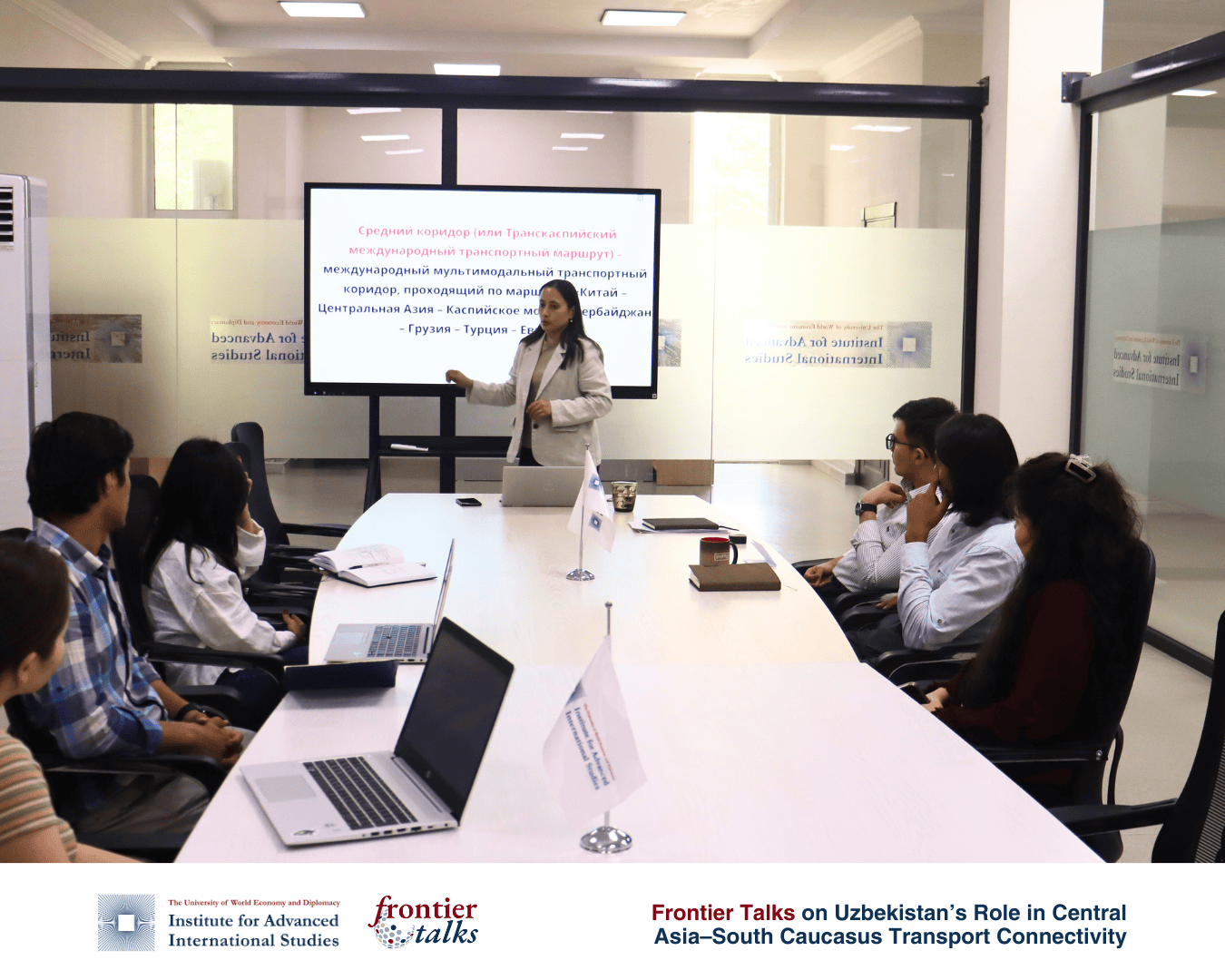
On September 8, IAIS hosted the next seminar in its flagship Frontier Talks series, reaffirming its commitment to fostering academic dialogue and policy-relevant research on pressing international issues. The event focused on “Uzbekistan’s Potential in the Development of Transport Communications along the Central Asia–South Caucasus Axis”, and featured a keynote lecture by Nargiza Umarova.
Against the backdrop of evolving geopolitical realities and the growing demand for diversified transit routes, the seminar sought to examine how Uzbekistan could leverage its geographic position to emerge as a major player in transcontinental trade corridors linking East and West. Nargiza Umarova’s presentation provided a comprehensive overview of the Central Asia–South Caucasus transport axis, situating Uzbekistan at the heart of ambitious infrastructure projects such as the Trans-Caspian International Transport Route, widely known as the Middle Corridor. Stretching from China across Central Asia, the Caspian Sea, Azerbaijan, Georgia, and Türkiye to Europe, this multimodal route offers significant opportunities for landlocked states to integrate into global supply chains and reduce dependence on traditional transit routes.
In her lecture, Ms. Umarova highlighted several strategic dimensions of Uzbekistan’s transport connectivity agenda. She pointed out that the Middle Corridor and other emerging routes could not only diversify Uzbekistan’s export and import channels but also stimulate industrial growth, attract foreign investment, and create new opportunities for regional cooperation. The presentation underscored the role of modern logistics infrastructure, harmonized customs regulations, and digital technologies in enhancing the competitiveness of these corridors.
Moreover, the seminar addressed the geopolitical and economic implications of expanding connectivity across Central Asia and the South Caucasus. Participants discussed how global supply chain disruptions, shifting trade patterns, and the quest for energy diversification were creating momentum for alternative transport routes linking Asia and Europe. Uzbekistan’s proactive engagement in regional transport initiatives, they noted, could strengthen its position as a linchpin of Eurasian connectivity.
The seminar concluded with a dynamic Q&A session, where participants exchanged views on practical steps Uzbekistan could take to maximize the benefits of transcontinental transport projects.